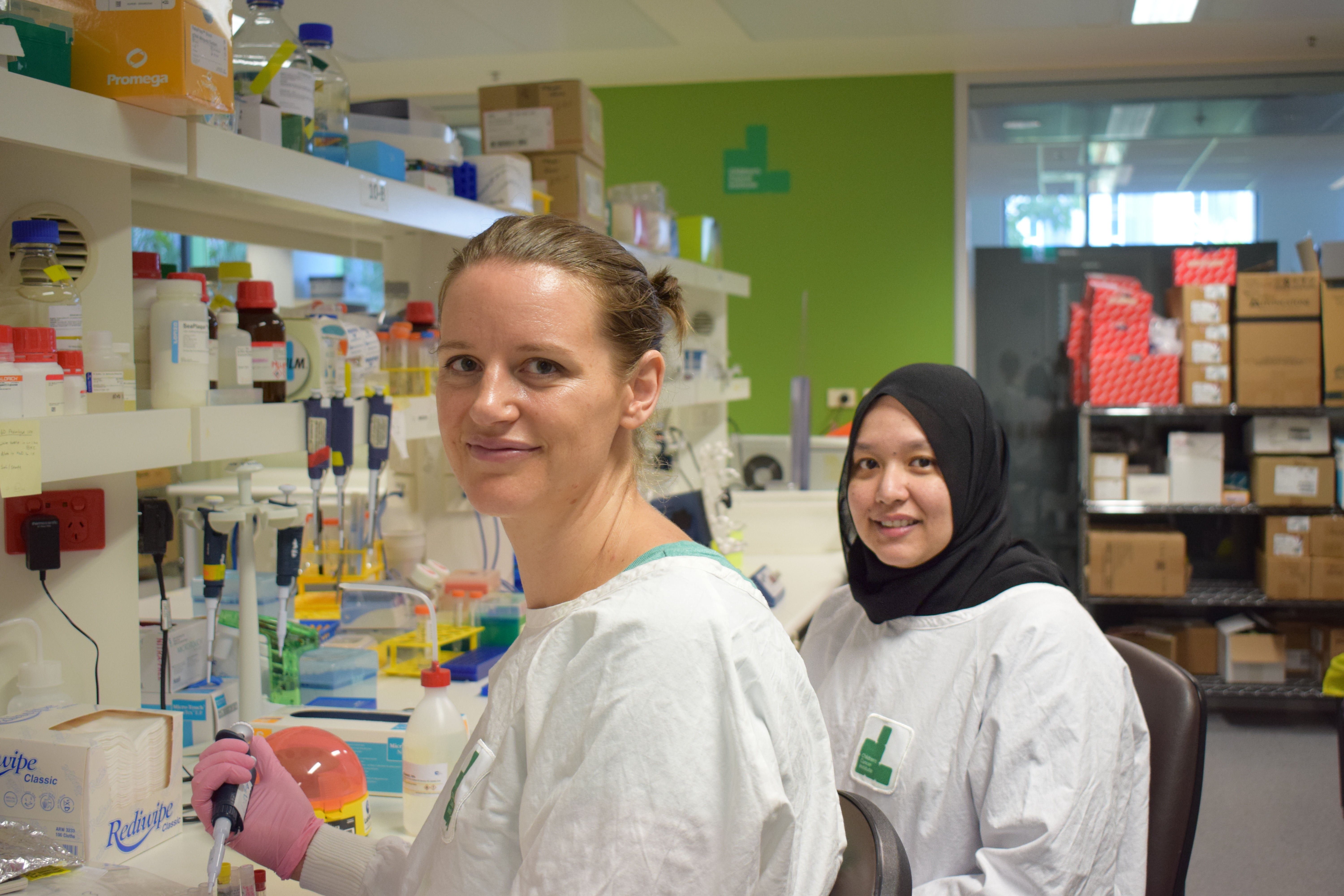Targeting NAD metabolism to overcome therapeutic resistance in acute myeloid leukaemia

Recipient: Dr Klaartje Somers
Institute: Children’s Cancer Institute
The Kids' Cancer Project Funding: $181,559 January 2023 to December 2025
Cancer Australia PdCCRS: $381,559
Total Funding: $563,118
Acute myeloid leukaemia (AML) is a highly fatal blood cancer in adults and children. The median 5-year survival for adult AML is less than 30% and one-third of children with AML relapse due to treatment resistance, with only 30% of relapsed patients surviving their disease. Resistance to treatment is thus a major challenge within the AML field and there is an urgent need to develop more effective and safer treatments for AML.
Altered metabolism plays a key role in cancer progression and resistance to treatment, making it an attractive therapeutic target. This research team recently showed that acute myeloid leukaemia (AML) cells are addicted to a metabolic enzyme called NAMPT, and that blocking NAMPT kills AML cells and also makes them more sensitive to standard of care drugs. By adding a newly developed NAMPT inhibitor to standard of care treatment, this project can pave the way towards a more effective treatment of poor outcome adult and paediatric AML.
*Learn about Cancer Australia's Priority-driven Collaborative Cancer Research Scheme.

